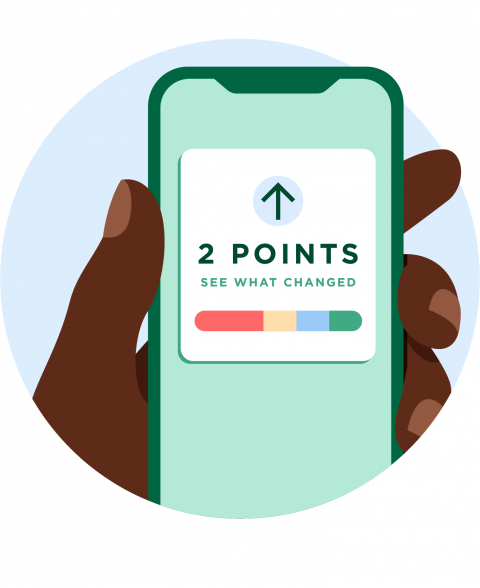Rate Shopping? Here’s How to Protect Your Credit

Many or all of the products featured here are from our partners who compensate us. This influences which products we write about and where and how the product appears on a page. However, this does not influence our evaluations. Our opinions are our own. Here is a list of our partners and here's how we make money.
If you're thinking of taking out a large loan, say for a car or house, it's smart to look for the best terms you can find. Even small differences in interest rates can add up to some big numbers over the life of a loan. It can be a mistake to take the first loan you're offered without shopping around.
Here's what to know about rate shopping and how to safeguard your credit score.
What is rate shopping?
Shopping for a loan isn't the same as shopping for groceries — people pay different amounts to borrow the same amount of money. The price you pay for your loan will be determined in part by your credit score, debt and income.
You can't comparison shop without actually applying. And your credit scores can take a small, temporary dip when a lender checks your credit because you've applied for a loan.
However, scoring formulas take the likelihood that you are shopping for a single loan into consideration. Similar credit checks are grouped together and counted as one — the scoring models understand you're not in the market for several houses, student loans or car loans.
This gives you the freedom to check several lenders' interest rates on a car loan before you go into a dealership, for example. And that lets you see if the dealer can beat your best offer. The same is true of mortgages and student loans.

How rate shopping can affect credit
There are two types of credit checks: hard and soft.
The type of credit check that can affect your credit, a "hard inquiry," happens when you apply for credit. Each inquiry can shave a few points off your score. That's why you want to be careful to rate shop within a window of time, so multiple hard inquiries can be treated as one for scoring purposes.
The other type of credit check, a "soft inquiry," won't harm your score. It happens when you check your own credit, or when a marketer or potential employer pulls your credit.
When you apply for a credit product that involves a hard inquiry on your credit, you may get an influx of marketing messages from lenders. This happens because credit bureaus sell marketing lists triggered by hard inquiries. But you can opt out, either permanently or for five years. Visit OptOutPreScreen, a service of credit bureaus Equifax, Experian, TransUnion and Innovis, or call 888-567-8688. The bureaus say your request will be effective within five days. Note that you may still receive marketing offers from lenders that use other sources. Opting out does not affect your credit score or your ability to apply for credit or insurance.
Your time frame for rate shopping
Depending on the scoring model used, your rate shopping window will range from 14 to 45 days. Similar inquiries within this period should barely dent your score.
The time frame varies between scoring companies. The latest FICO scores offer a 45-day window for rate shopping, and VantageScore uses 14 days. However, some older FICO scoring models that are still in use have a 14-day window. So the safest thing is to group applications in a single 14-day window.
Some lenders and credit card issuers offer a "prequalification" process that doesn't affect your credit at all. It's a way of determining whether you are likely to qualify before you actually apply. Your credit score isn't affected unless you choose to apply.

When can’t you rate shop?
While loans for homes, cars and education can each be batched for rate-shopping purposes, you won’t be able to batch applications for credit cards or for debt consolidation loans.
People who apply for multiple credit cards in a short time frame are considered high risk, and these inquiries all count. NerdWallet recommends spacing credit card applications out by at least six months if you can.
Have a rate shopping strategy
The point of rate shopping is to get the best rates, and you can do it without jeopardizing your credit. Here’s how:
Apply for loans in a relatively short period. If you aren’t sure how long your application window is, play it safe and stick to 14 days.
Don’t apply for other credit at the same time if you can avoid it. If you're shopping for a mortgage, resist applying for a credit card at the same time.
Getting the best deal on a large loan can save you a chunk of money. Applying for a loan once you have built a good credit score and knowing how to batch your applications should help you get the best terms.


